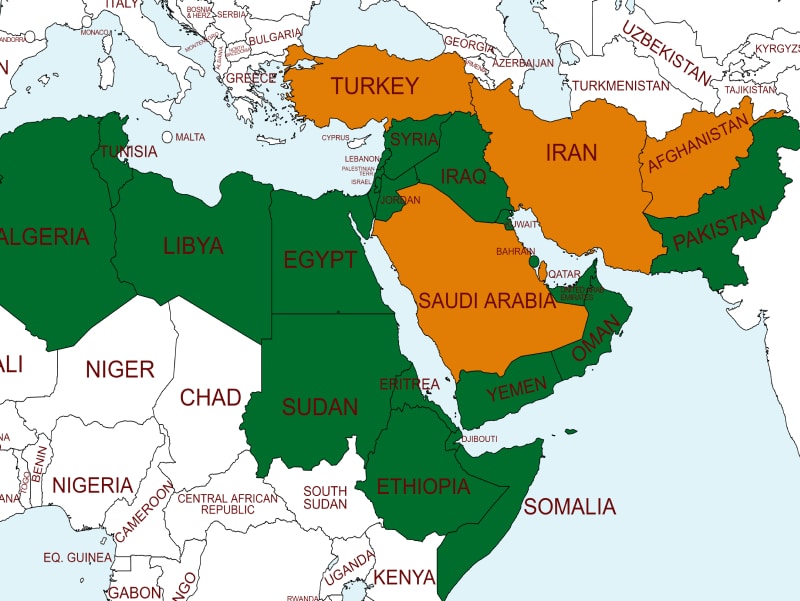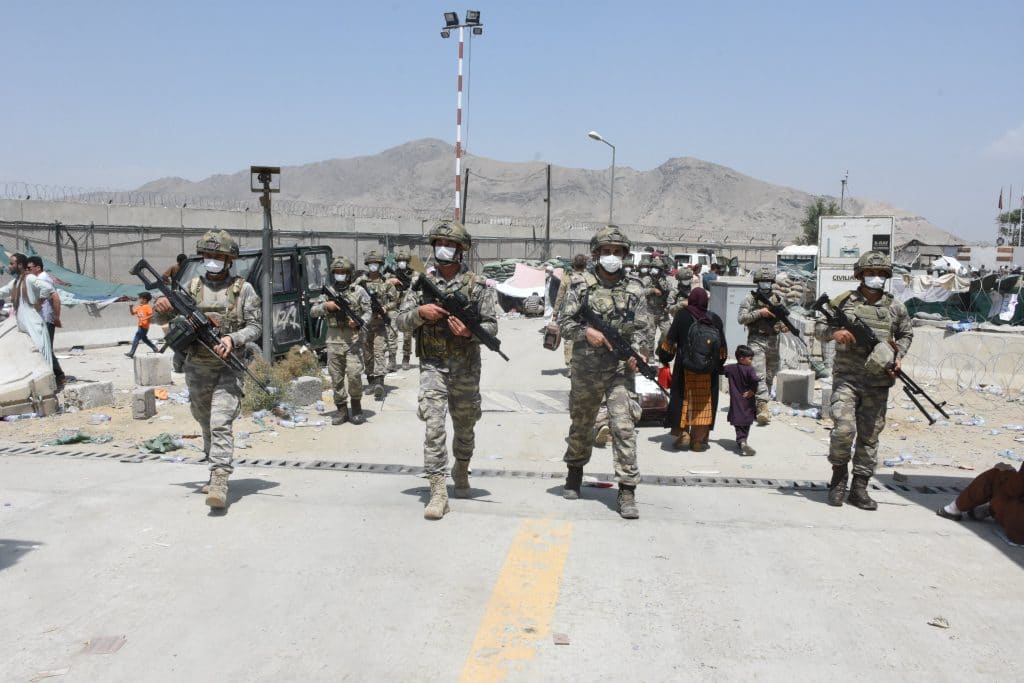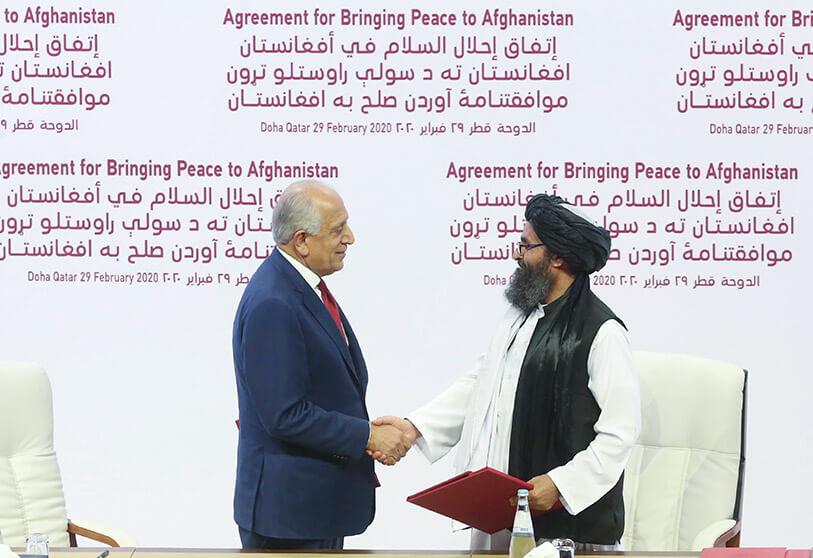
When the Taliban took power in Afghanistan in August 2021, the question of their attitude towards the countries in the region arose. The most significant consequences can be caused by their relationship with Turkey, Iran, Saudi Arabia, and Qatar because each of these countries will try to impose their influence in Kabul to strengthen their positions. However, the international community overwhelmingly refuses to recognize the Taliban as the legitimate government in Kabul, given that they came to power by force. Therefore, it will be interesting to observe the Taliban’s attitude towards the states that recognized or will recognize their government in Kabul in the coming period.
After the withdrawal of American forces from Afghanistan was announced, members of the Turkish army were supposed to take control of the Hamid Karzai airport in Kabul. However, even then, the Taliban pointed out that they did not want the presence of foreign troops on their territory, and that they could only negotiate technical support in securing the airport. If Turkey actually took command of the airport, it would also control most transport to and from Afghanistan, which would contribute to the two countries' economic ties. However, the Taliban are determined to secure the airport on their own, and they point out that Turkish troops staying could contribute to the deterioration of bilateral relations. In some political and military circles, the possibility of hiring Turkish mercenaries to secure the airport is even mentioned. That way the authorities in Ankara would try to avoid the direct engagement of the army, but also conflict with the opposition. Namely, the opposition parties in Turkey are increasingly loud in their criticism of the government for not withdrawing all troops from Afghanistan.

Turkish President Recep Tayyip Erdoğan himself has repeatedly stressed that the future of relations between Turkey and the Taliban authorities in Afghanistan will depend on the moves taken by authorities in Kabul. This way, Erdogan wants to distance himself from possible human rights violations in Afghanistan on one hand, while on the other, he also ensures there is a possibility of building good relations. There is no doubt that Ankara will try to bring Kabul closer so that Tehran or Riyadh would not be able to do so. Also, if it manages to expand at least soft power over Afghanistan, and thus control the Taliban, Turkey would improve its status in NATO, which has been shaken by the recent, primarily economic, rapprochement with the Russian Federation. Turkey will certainly try to take advantage of the fact that it is the only majority Muslim member of the Alliance and on that basis win over the governing structures in Kabul.
However, what could jeopardize the further relationship between the two countries, among other things, is the issue of migration from Afghanistan to Turkey. Now that a new wave of migrants is virtually guaranteed, opposition parties in Turkey are urging the government to prevent it. However, the number of refugees that will reach the Turkish border will depend on the Taliban's policy towards those who are trying to leave the country, as well as on the country located between Afghanistan and Turkey - the Islamic Republic of Iran.
Perhaps the most interesting could be the development of relations with Iran. The Taliban occupied the largest border crossing with Iran at the beginning of the summer. Since then there has been an open discussion about possible cooperation with the authorities in Tehran. Although Afghan-Iranian relations have not been good in the past, given that Iran supported the Northern Alliance in the early 2000s, the situation is now significantly different. Since the West does not look favorably on the policies of Tehran and the Taliban, this naturally places these two countries on the same side. As Iran is under economic sanctions, there is no doubt that it will try to place at least a part of its products on the Afghan market.
In addition, economic cooperation between Afghanistan and Iran has been at an extremely high level in previous years, so the same sequence of events can be expected in the coming period. Also, given that the Taliban openly say that they will introduce Sharia law in the country, Iran is a state that can definitely be emulated on that issue.
From the security point of view, another issue that could bring Iran and Afghanistan closer in the next period is the matter of relations with certain terrorist organizations. Namely, both countries consider the Islamic State of Khorasan province an enemy on one hand, while on the other they support al-Qaeda. Although the Taliban have repeatedly stressed that they will not allow Afghanistan to be a haven for any terrorist organization again, it is almost unthinkable for them to declare war on al-Qaeda. Something like that would disrupt their relations not only with Iran, but also with Pakistan, and Kabul will need every vote in the international community that they can secure in the period ahead.
An obstacle to building good relations with Iran could be religion. Although both countries are Muslim, Iran is the leading Shiite country, while the Taliban are Sunnis. However, Iranians have shown, on the example of Qatar, that they can cooperate well with Sunni countries when it is in their interest. Therefore, it can be expected that geostrategic interests will prevail this time as well, and that religious differences won’t actually be an issue.
The Kingdom of Saudi Arabia is one of the three countries that recognized the previous Taliban regime in Afghanistan. Nevertheless, Riyadh's influence in Kabul has always been limited. Although the Saudis financed the Taliban then, it is unlikely that a similar scenario will be repeated now, as today's Saudi Arabia is undoubtedly trying to secure its place in the modern world. Even though it is fighting with all its might against the spread of democracy in the Arabian Peninsula, Riyadh will certainly not embrace the Taliban regime in Kabul easily, so as not to provoke the anger of the international community above all.
However, what Saudi Arabia will try to prevent at all costs is the rapprochement of Afghanistan with the Iranian regime. Given that Iran is considered its greatest rival, in political, military, and religious terms, Saudi Arabia will certainly not look favorably on the spread of Tehran’s influence. In addition, the State of Qatar, which has been successfully "messing“ with the Saudi strings in various aspects for years, traditionally maintains decent relations with the Taliban, which is another reason why we can expect Riyadh to try to build any relations with Kabul. Both the Saudis and Taliban belong to the Sunni branch of Islam and practice very strict religious laws, so it is unlikely that the former alliance will be fully renewed, although the religious aspect could be the reason for the rapprochement at first glance.
Based on all the above, it could turn out that Qatar benefits the most from the change of government in Kabul. Not only was Doha a mediator during negotiations with the United States, but it was also a haven for some of the top Taliban officials in previous years. Qatar accepted the role of mediator in the negotiations not because of excessive love for the Taliban but to secure the favor of the United States amid the Qatar diplomatic crisis (2017-2021).

Qatar's attitude towards the Taliban was based on the necessity of negotiations and emphasizing diplomacy. Now that the negotiations are over, it seems that the attitude of Doha towards Kabul will be the same as relations that Kabul has with Tehran and Ankara, i.e. the Taliban will be close allies of Qatar. This Gulf country will certainly be an important economic partner of Afghanistan and another lobbyist in the international community.
From all the above, it can be concluded that the change of government in Kabul will cause various diplomatic turmoil in the region. In addition to the above-mentioned countries, the influence and attitude of China, Pakistan, Russia, and some other countries in this part of the world towards the Taliban authorities will be significant as well. It is certain that this will greatly influence the development of future events, some of which may have long-term but not necessarily good consequences.
Translation: Tamara Djordjevic
Proofreading: Nikola Petrovic


